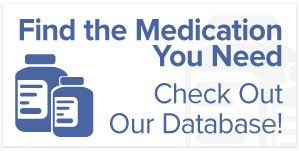The world’s population is aging quickly as a result of the tremendous rise in life expectancy that has occurred in recent decades. While living longer is unquestionably a reason to rejoice, the aging process poses many difficulties, particularly in the form of age-related disorders. People get increasingly prone to a variety of common ailments as an impact of aging, which can negatively affect their quality of life and overall health.
Unlocking the Key to Healthy Aging
Understanding how common diseases are affected by aging is essential for patients and healthcare systems. It allows scientists to create strategies that encourage healthy aging, improve illness prevention, and offer personalized therapies to older persons. Scientists can gain important insights into aging and prevalent diseases by exploring the intricate link between the two. In addition to shedding light on recent scientific developments and new trends in this area, this article attempts to investigate the significant impact of aging on a number of common disorders.
The Relationship Between Common Diseases and Aging
Our susceptibility to many diseases is affected by the numerous physiological changes our bodies go through as humans age. As people get older, chronic illnesses, including osteoporosis, diabetes, cancer, neurological diseases, and cardiovascular disease, become more common. The interaction between these diseases and aging is complex and impacted by a number of genetic, environmental, and lifestyle variables.
Acknowledging the Underlying Mechanisms
To create efficient preventative measures and therapies, unraveling the intricate molecular pathways behind age-related disorders is imperative. Scientists are investigating the cellular and molecular alterations that contribute to the onset and progression of various diseases, such as genomic instability, telomere shortening, dysfunctional mitochondria, and reduced immunological function. Understanding these systems could lead to the development of specific treatments.
Promoting Disease Prevention and Healthy Aging
Although aging is natural, encouraging good aging and illness prevention is a viable strategy to lessen the effects of prevalent diseases. It has been demonstrated that adopting a healthy lifestyle can improve health outcomes and lower the chance of developing age-related diseases. These lifestyle elements include regular physical activity, a balanced diet, stress management, and social interaction. Additionally, precision gerontology and personalized medicine developments present exciting chances to spot high-risk patients and act early with specialized therapies or interventions.
New Phenomena and Future Directions
As the understanding of how aging affects prevalent diseases grows, a number of new trends show promise for enhancing older persons’ health. These include the creation of novel biomarkers, developments in regenerative medicine, research into senolytic medicines that target senescent cells, and possible applications of artificial intelligence to diagnose and treat disease. To address the issues brought on by age-related diseases, social and public health policies emphasizing healthy aging, easily accessible medical care, and age-appropriate environments are essential.

It is clear that scientists must focus their attention and make strong attempts to address the urgent issue of how aging affects common diseases. Researchers can try to promote healthy aging, avoid age-related disorders, and enhance the quality of life by understanding the intricate interactions between aging and disease.
Are you looking to enhance your quality of life by integrating the best supplements into your routine? Let Rx Helper be your friend, a leading US-based prescription program to get the best healthcare without insurance. Book your appointment today!



